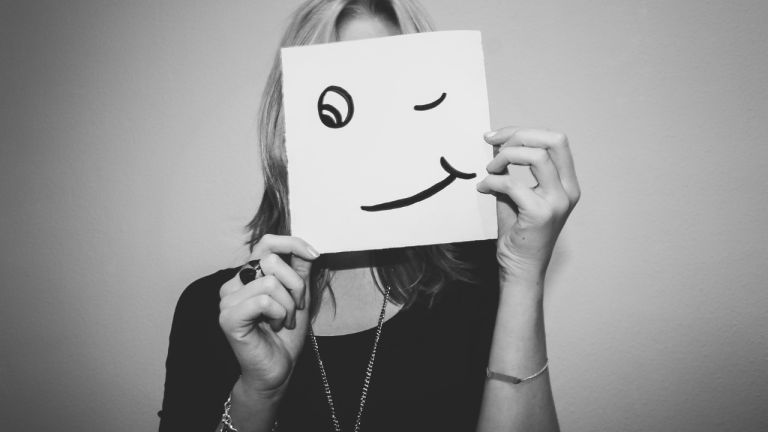Why stillness is the new badge of honour.
My family and I have deep Greek Australian immigrant roots. Those of you who are familiar with Greek culture will appreciate the powerful juxtaposition between generosity, warmth, sentimentality, and an unhealthy preoccupation with status, success, and achievement.
This relentless drive for perfection—for success, in very defined terms, is integral to the immigrant psyche. This is echoed in social class research. The material conditions in which we are raised and live, have a lasting impact on our personal and social identities.
I refer to this as “Greek in our complications, and Buddhist in our aspirations”
I doth protest too much.
For many of my generation who grew up in Australia, attainment was the fundamental goal for those who took their lives seriously— a degree, two or three, a linear career path, promotions, travel, an enviable salary, recognition as a true entrepreneur, first house, endless renovations. We are hardwired for achievement, and boy do we take it seriously. For some of our ancestors, success was much more visceral. Not ambition for material gain, but the basic ability to stay alive in difficult, and often dangerous circumstances, in order to procreate, to keep their family safe and fed–—to survive
Many of us, myself included, have been forced to slow down over the last few years. As our roles become redundant, we are manically re-engineering our careers, or in other words, pivoting, or even pandemic pirouetting. Indeed most of us are still contemplating the mixed joys and discomforts of solitude and remote working.
This downtime is especially difficult for those who strive for a perpetual state of busyness.
You know the drill. We impose these mythical standards on ourselves. We are up at the crack of dawn for a spot of meditation before morphing into maverick leaders during the working day, winning hearts and minds. Alternatively, if not leaders, then we must be the rockstar employees who are emotionally intelligent, impeccably planned, and organised.
But what of those suffering from mental health issues; the 1 in 5 Australians in 2022, for whom mythical creature status is near impossible–—those for whom simple survival is a struggle?
Being overscheduled, in demand, and always on the go, creates the illusion of achievement and success. This construct is pervasive in our culture, and when we are not in demand in our professional and personal lives, we feel a sense of terror, of exclusion, and loss of control. We feel inadequate.
We need to start shifting the common mindset around busyness, and exhaustion as status symbols or measures of success. We need to remind ourselves that being busy is an armour we often wear in order to protect ourselves against other vulnerabilities such as loneliness, addiction, and lack of control.
Now more than ever, we need to find comfort in slowing down, cultivating mindfulness, and being present in the moment, even if we experience a deep aversion to doing so.
If you ever receive the gift of silence, treat it with the utmost care, respect and gratitude:
- Understand that the perceived loss of “busyness” may actually be the world conspiring in your favour. Remember that optimism is one of the strongest predictors of effectiveness in life. Embrace a sanctuary of calm, because even now, as the world burns, beauty and peace are worth our attention. Embrace a positive mindset, and some serious reframing techniques, just like the therapist ordered. This will help to create deeper shifts in the psyche around the acceptance of stillness as your new bestie.
- Now breathe and reboot. Breathing and meditation techniques are all well and good unless you are in a state of grief or high arousal/agitation following a redundancy or some other significant career shift. Treat your recovery from the loss of busyness like a good addict, one step at a time. First comes awareness, then acceptance. You will need to calm that “monkey mind” before you can successfully attempt breathing techniques.
Calmer, calmer, calmer, calmer, calmer chameleon.
I know that we all need to provide for our families and this particular stress can be overwhelming, however, treat your downtime as an opportunity for recalibration, and rebuilding your emotional reserves. You could begin by finally downloading that headspace mindfulness app., and give yourself time to go for that run you’ve been putting off. Take interrupted time with your children. Put your phone away. This shift towards genuine connection will be mutually rewarding.
- Shift the conversation from “busy” to “achieving”: I remember fondly the first moment my brilliant colleague responded to my “how are you” with “I’m achieving heaps today” rather than “I’m busy”. It felt so foreign to me at the time, but since then, I have passionately adopted the phrase myself. Sometimes I regress, especially when I am at the mercy of that (damn) deep-seated need for recognition.
At an individual level, the risk of busyness as the badge of honour is psychological burnout. At the organisational level, it will translate to an increase in Mental Health claims, absenteeism, presenteeism and resentment. Organisations that shift the conversation from “busyness” to one of adding value against strategic imperatives, will fare much better.



